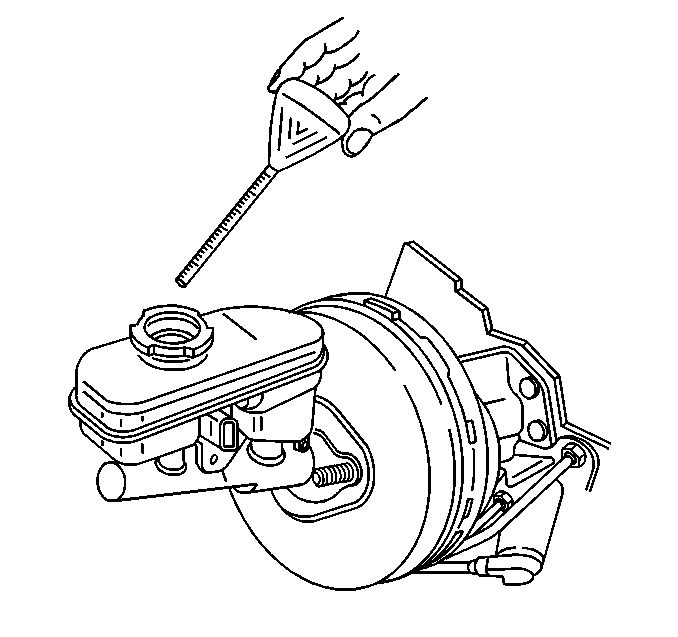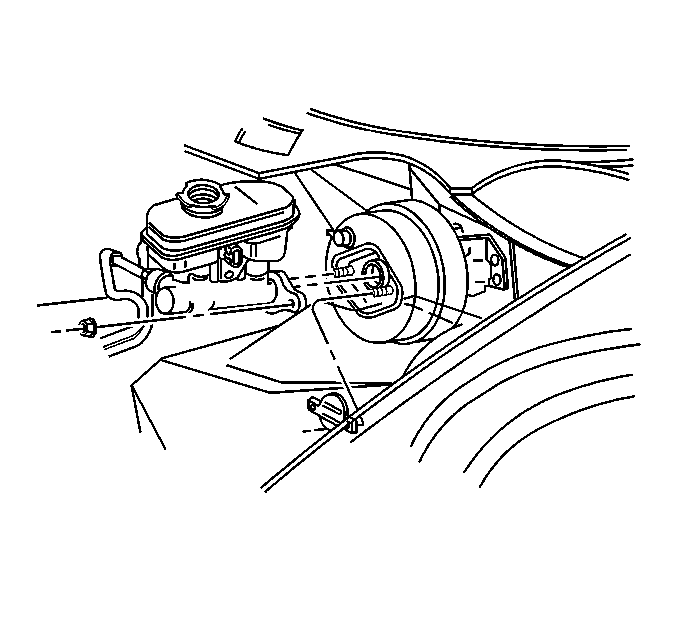Removal procedure
- Remove and discard the brake fluid from the reservoir.
- Disconnect brake pipes from the master cylinder.
- Disconnect the brake fluid level sensor connector.
- Remove the master cylinder nuts.
- Remove the master cylinder.

Notice: Avoid spilling brake fluid onto painted surfaces, electrical connections, wiring, or cables. Brake fluid will damage painted surfaces and cause corrosion to electrical components. If any brake fluid comes in contact with painted surfaces, immediately flush the area with water. If any brake fluid comes in contact with electrical connections, wiring, or cables, use a clean shop cloth to wipe away the fluid.

Installation Procedure
- Bench bleed the master cylinder. Refer to .
- Install the master cylinder.
- Install the master cylinder nuts.
- Fill the master cylinder reservoir. Refer to Master Cylinder Reservoir Filling .
- Install the brake pipes onto the master cylinder one at a time. Complete the following steps:
- Connect the brake fluid level sensor connector.

Notice: Use the correct fastener in the correct location. Replacement fasteners must be the correct part number for that application. Fasteners requiring replacement or fasteners requiring the use of thread locking compound or sealant are identified in the service procedure. Do not use paints, lubricants, or corrosion inhibitors on fasteners or fastener joint surfaces unless specified. These coatings affect fastener torque and joint clamping force and may damage the fastener. Use the correct tightening sequence and specifications when installing fasteners in order to avoid damage to parts and systems.
Tighten
Tighten the master cylinder nuts to 29 N·m (21 lb ft).
| 5.1. | Remove the locally fabricated plugs. |
| 5.2. | Install the brake pipe fitting finger tight. |
| 5.3. | Have an assistant depress the brake pedal in order to remove air at the loose brake pipe fittings. |
Tighten
Tighten the brake pipe fittings to 32 N·m (24 lb ft).
| 5.4. | Have an assistant quickly release and pump the brake pedal several times. |
| 5.5. | If the brake pedal remains high and firm, start the vehicle. If the brake pedal still feels firm, test drive the vehicle. |
If the brake pedal feels soft or spongy, bleed the entire brake hydraulic system. Refer to Hydraulic Brake System Bleeding .
